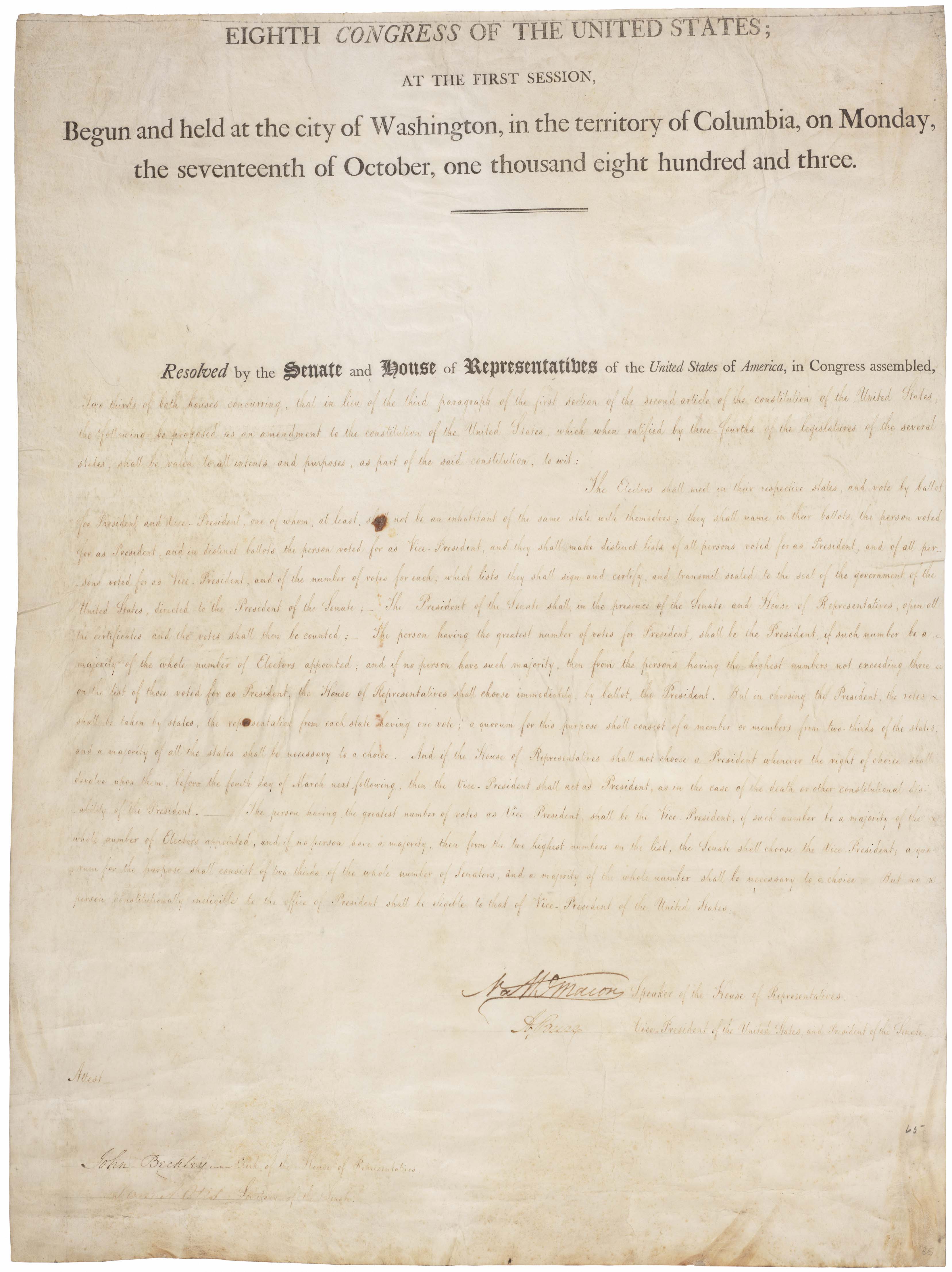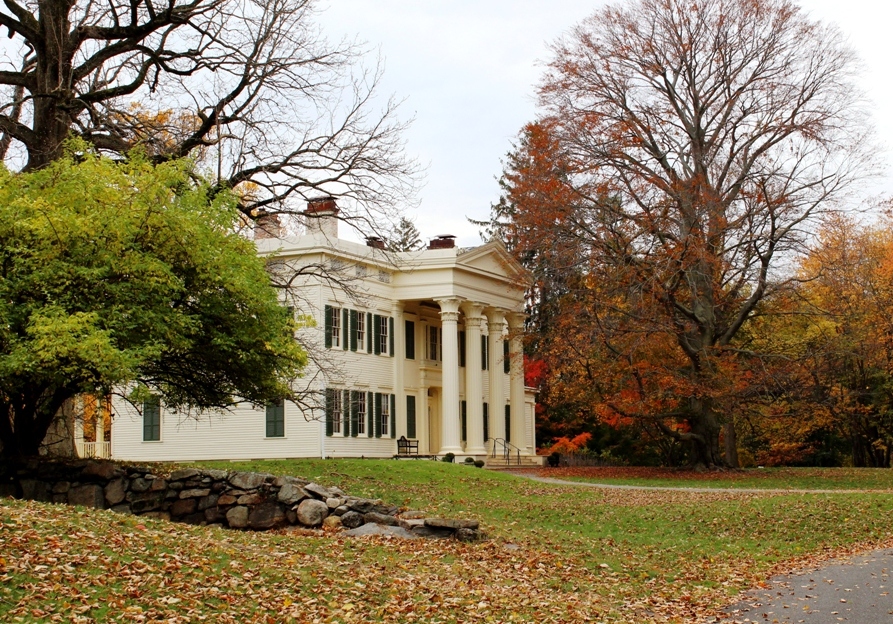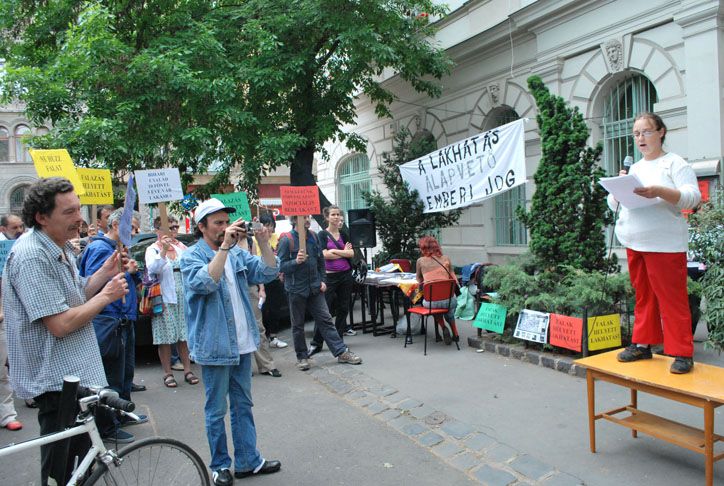|
1788–89 United States Elections
The United States elections of 1788–1789 were the first federal elections in the United States following the ratification of the United States Constitution in 1788. In the elections, George Washington was elected as the first president and the members of the 1st United States Congress were selected. Formal political parties did not exist, as the leading politicians of the day largely distrusted the idea of "factions." However, in the years after the ratification of the Constitution, Congress would become broadly divided by the economic policies of Treasury Secretary Alexander Hamilton, with the Pro-Administration faction supporting those policies. Opposing them was the Anti-Administration faction, which sought a smaller role for the federal government. In these elections, the Pro-Administration faction won majorities in both houses of Congress. Meanwhile, General George Washington was elected as the country's first president, while John Adams, who finished with the second ... [...More Info...] [...Related Items...] OR: [Wikipedia] [Google] [Baidu] |
1st United States Congress
The 1st United States Congress, comprising the United States Senate and the United States House of Representatives, met from March 4, 1789, to March 4, 1791, during the first two years of George Washington's presidency, first at Federal Hall in New York City and later at Congress Hall in Philadelphia. With the initial meeting of the First Congress, the United States federal government officially began operations under the new (and current) frame of government established by the 1787 Constitution. The apportionment of seats in the House of Representatives was based on the provisions of Article I, Section 2, Clause 3 of the Constitution. Both chambers had a Pro-Administration majority. Twelve articles of amendment to the Constitution were passed by this Congress and sent to the states for ratification; the ten ratified as additions to the Constitution on December 15, 1791, are collectively known as the Bill of Rights, with an additional amendment ratified more than two centuries ... [...More Info...] [...Related Items...] OR: [Wikipedia] [Google] [Baidu] |
Twelfth Amendment To The United States Constitution
The Twelfth Amendment (Amendment XII) to the United States Constitution provides the procedure for electing the president and vice president. It replaced the procedure provided in Article II, Section 1, Clause 3, by which the Electoral College originally functioned. The amendment was proposed by the Congress on December 9, 1803, and was ratified by the requisite three-fourths of state legislatures on June 15, 1804. The new rules took effect for the 1804 presidential election and have governed all subsequent presidential elections. Under the original rules of the Constitution, each member of the Electoral College cast two electoral votes, with no distinction made between electoral votes for president and electoral votes for vice president. The presidential candidate receiving the greatest number of votes—provided that number at least equaled a majority of the electors—was elected president, while the presidential candidate receiving the second-most votes was elected vice ... [...More Info...] [...Related Items...] OR: [Wikipedia] [Google] [Baidu] |
Joint Session Of The United States Congress
A joint session of the United States Congress is a gathering of members of the two chambers of the bicameral legislature of the federal government of the United States: the Senate and the House of Representatives. Joint sessions can be held on any special occasion, but are required to be held when the president delivers a State of the Union address, when they gather to count and certify the votes of the Electoral College as the presidential election, or when they convene on the occasion of a presidential inauguration. A joint meeting is a ceremonial or formal occasion and does not perform any legislative function, and no resolution is proposed nor vote taken. Joint sessions and meetings are usually held in the Chamber of the House of Representatives, and are traditionally presided over by the speaker of the House. However, the Constitution requires the vice president (as president of the Senate) to preside over the counting of electoral votes. Counting electoral votes The Twe ... [...More Info...] [...Related Items...] OR: [Wikipedia] [Google] [Baidu] |
United States Senate
The United States Senate is the upper chamber of the United States Congress, with the House of Representatives being the lower chamber. Together they compose the national bicameral legislature of the United States. The composition and powers of the Senate are established by Article One of the United States Constitution. The Senate is composed of senators, each of whom represents a single state in its entirety. Each of the 50 states is equally represented by two senators who serve staggered terms of six years, for a total of 100 senators. The vice president of the United States serves as presiding officer and president of the Senate by virtue of that office, despite not being a senator, and has a vote only if the Senate is equally divided. In the vice president's absence, the president pro tempore, who is traditionally the senior member of the party holding a majority of seats, presides over the Senate. As the upper chamber of Congress, the Senate has several powers o ... [...More Info...] [...Related Items...] OR: [Wikipedia] [Google] [Baidu] |
John Rutledge
John Rutledge (September 17, 1739 – June 21, 1800) was an American Founding Father, politician, and jurist who served as one of the original associate justices of the Supreme Court and the second chief justice of the United States. Additionally, he served as the first president of South Carolina and later as its first governor after the Declaration of Independence was signed. Born in Charleston, South Carolina, Rutledge established a legal career after studying at Middle Temple in the City of London. He was the elder brother of Edward Rutledge, a signatory of the Declaration of Independence. Rutledge served as a delegate to the Stamp Act Congress, which protested taxes imposed on the Thirteen Colonies by the Parliament of Great Britain. He also served as a delegate to the Continental Congress, where he signed the Continental Association, before being elected as governor of South Carolina. He served as governor during much of the American Revolutionary War. After briefly ... [...More Info...] [...Related Items...] OR: [Wikipedia] [Google] [Baidu] |
James Madison
James Madison Jr. (March 16, 1751June 28, 1836) was an American statesman, diplomat, and Founding Father. He served as the fourth president of the United States from 1809 to 1817. Madison is hailed as the "Father of the Constitution" for his pivotal role in drafting and promoting the Constitution of the United States and the Bill of Rights. Madison was born into a prominent slave-owning planter family in Virginia. He served as a member of the Virginia House of Delegates and the Continental Congress during and after the American Revolutionary War. Unsatisfied with the weak national government established by the Articles of Confederation, he helped organize the Constitutional Convention, which produced a new constitution. Madison's Virginia Plan was the basis for the Convention's deliberations, and he was an influential voice at the convention. He became one of the leaders in the movement to ratify the Constitution, and joined Alexander Hamilton and John Jay in writing '' ... [...More Info...] [...Related Items...] OR: [Wikipedia] [Google] [Baidu] |
John Jay
John Jay (December 12, 1745 – May 17, 1829) was an American statesman, patriot, diplomat, abolitionist, signatory of the Treaty of Paris, and a Founding Father of the United States. He served as the second governor of New York and the first chief justice of the United States. He directed U.S. foreign policy for much of the 1780s and was an important leader of the Federalist Party after the ratification of the United States Constitution in 1788. Jay was born into a wealthy family of merchants and New York City government officials of French Huguenot and Dutch descent. He became a lawyer and joined the New York Committee of Correspondence, organizing American opposition to British policies such as the Intolerable Acts in the leadup to the American Revolution. Jay was elected to the First Continental Congress, where he signed the Continental Association, and to the Second Continental Congress, where he served as its president. From 1779 to 1782, Jay served as the ambassador ... [...More Info...] [...Related Items...] OR: [Wikipedia] [Google] [Baidu] |
John Hancock
John Hancock ( – October 8, 1793) was an American Founding Father, merchant, statesman, and prominent Patriot of the American Revolution. He served as president of the Second Continental Congress and was the first and third Governor of the Commonwealth of Massachusetts. He is remembered for his large and stylish signature on the United States Declaration of Independence, so much so that the term ''John Hancock'' or ''Hancock'' has become a nickname in the United States for one's signature. He also signed the Articles of Confederation, and used his influence to ensure that Massachusetts ratified the United States Constitution in 1788. Before the American Revolution, Hancock was one of the wealthiest men in the Thirteen Colonies, having inherited a profitable mercantile business from his uncle. He began his political career in Boston as a protégé of Samuel Adams, an influential local politician, though the two men later became estranged. Hancock used his wealth to support t ... [...More Info...] [...Related Items...] OR: [Wikipedia] [Google] [Baidu] |
Thomas Jefferson
Thomas Jefferson (April 13, 1743 – July 4, 1826) was an American statesman, diplomat, lawyer, architect, philosopher, and Founding Fathers of the United States, Founding Father who served as the third president of the United States from 1801 to 1809. He was previously the nation's second vice president of the United States, vice president under John Adams and the first United States Secretary of State, United States secretary of state under George Washington. The principal author of the United States Declaration of Independence, Declaration of Independence, Jefferson was a proponent of democracy, republicanism, and individual rights, motivating Thirteen Colonies, American colonists to break from the Kingdom of Great Britain and form a new nation. He produced formative documents and decisions at state, national, and international levels. During the American Revolution, Jefferson represented Virginia in the Continental Congress that adopted the Declaration of Independence. As ... [...More Info...] [...Related Items...] OR: [Wikipedia] [Google] [Baidu] |
President Of The United States Senate
The vice president of the United States (VPOTUS) is the second-highest officer in the executive branch of the U.S. federal government, after the president of the United States, and ranks first in the presidential line of succession. The vice president is also an officer in the legislative branch, as the president of the Senate. In this capacity, the vice president is empowered to preside over Senate deliberations at any time, but may not vote except to cast a tie-breaking vote. The vice president is indirectly elected together with the president to a four-year term of office by the people of the United States through the Electoral College. The modern vice presidency is a position of significant power and is widely seen as an integral part of a president's administration. While the exact nature of the role varies in each administration, most modern vice presidents serve as a key presidential advisor, governing partner, and representative of the president. The vice president is ... [...More Info...] [...Related Items...] OR: [Wikipedia] [Google] [Baidu] |
Grassroots
A grassroots movement is one that uses the people in a given district, region or community as the basis for a political or economic movement. Grassroots movements and organizations use collective action from the local level to effect change at the local, regional, national or international level. Grassroots movements are associated with bottom-up, rather than top-down decision making, and are sometimes considered more natural or spontaneous than more traditional power structures. Grassroots movements, using self-organization, encourage community members to contribute by taking responsibility and action for their community. Grassroots movements utilize a variety of strategies from fundraising and registering voters, to simply encouraging political conversation. Goals of specific movements vary and change, but the movements are consistent in their focus on increasing mass participation in politics. These political movements may begin as small and at the local level, but grassroots ... [...More Info...] [...Related Items...] OR: [Wikipedia] [Google] [Baidu] |
American Revolutionary War
The American Revolutionary War (April 19, 1775 – September 3, 1783), also known as the Revolutionary War or American War of Independence, was a major war of the American Revolution. Widely considered as the war that secured the independence of the United States, fighting began on April 19, 1775, followed by the Lee Resolution on July 2, 1776, and the Declaration of Independence on July 4, 1776. The American Patriots were supported by the Kingdom of France and, to a lesser extent, the Dutch Republic and the Spanish Empire, in a conflict taking place in North America, the Caribbean, and the Atlantic Ocean. Established by royal charter in the 17th and 18th centuries, the American colonies were largely autonomous in domestic affairs and commercially prosperous, trading with Britain and its Caribbean colonies, as well as other European powers via their Caribbean entrepôts. After British victory over the French in the Seven Years' War in 1763, tensions between the motherland and he ... [...More Info...] [...Related Items...] OR: [Wikipedia] [Google] [Baidu] |








